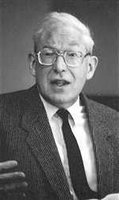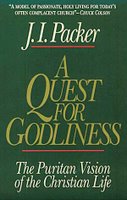
Conflicting Absolutism (CA)
Another way to deal with moral dilemmas is to admit that they really do exist, and try to deal with them head on. This is the position of the conflicting absolutist. This position is held by theologians such as, Helmut Thielicke, John Warwick Montgomery, J.I. Packer, and E.J. Carnell. This position is also known as ideal absolutism, as it believes that ideally God’s laws do not conflict, but in this fallen world there are times when they do. Some of the conflict is due to a lack of clarity on our part.
This position is probably the easiest to explain. When confronted with a moral dilemma, such as the midwives lying to protect the children or Rahab lying to protect the spies (see Joshua 2:1), what we must do is simply choose the lesser of two evils. In these two instances lying is the lesser sin than failing to protect the life of your neighbor. In these situations what we must do is admit that we had done wrong, repent, and ask God for forgiveness. In both of these situations God praised the women, not for their lying, but for their faith and doing the best they could in such a tough situation.
In the case of the mother with a tumor (see previous posts), it would be a greater sin to simply let the mother die without any attempt to save them both, since we never know for certain if the child will die. Though the chance of losing the child may be 99.9%, to not make any attempt would be the greater sin. If the child dies we must then ask for forgiveness.
Strengths of this position,
1) This position makes another strong attempt to stick to absolutes.
2) It’s not afraid to face moral dilemmas head on.
Weakness
1) It begins to weaken those absolutes by stating that they are a bit ambiguous in this fallen

world.
2) What do we do with the scripture that says Jesus was tempted in every way as we are? Does this mean that Jesus was tempted in a way that He had to choose between two sins, thus making him a sinner? Or was he not tempted in this way thus making the “tempted” verse untrue.
3) This verse also seems to go against the idea of repentance. To repent is to ask God for forgiveness with the idea that we will do our best to not do it again. But in this case we would have every intention of doing it again if faced with the same situation, because it’s the best decision we can make.
It seems to me this is the weakest of all three positions, but I do not consider J.I. Packer a light weight, in fact I enjoy most of what he has to say. I have not read him on this particular issue which makes me wonder if I’ve missed something in my understanding. But after reading Thielicke, this is the understanding that is presented by this position.
Next we will deal with the most controversial but probably the most logically consistent position; graded absolutism.
As you think through this, how do you handle the moral dilemmas presented in these posts?
God Bless,
Doug
Labels: Ethics, Moral Absolutism
 "For it is certainly the case that the Word of God, read or preached, has the power to enter the innermost crevices of a person’s being, to shine light in unwanted places, to explode the myths and deceits by which fallen life sustains itself, and to bring that person face to face with the eternal God. It is this biblical Word which God uses to bring repentance, to excite faith, to give new life, to sustain that life once given, to correct, nurture, and guide the Church (Jer. 23:23; II Tim. 3:16; Heb. 4:12; Jas. 1:18). The biblical Word is self-authenticating under the power of the Holy Spirit. This Word of God is the means by which God accomplishes his saving work in his people, and this is a work that no evangelist and no preacher can do. This is why the dearth of serious, sustained biblical preaching in the Church today is a serious matter. When the Church loses the Word of God it loses the very means by which God does his work. In its absence, therefore, a script is being written, however unwittingly, for the Church’s undoing, not in one cataclysmic moment, but in a slow, inexorable slide made up of piece by tiny piece of daily dereliction."
"For it is certainly the case that the Word of God, read or preached, has the power to enter the innermost crevices of a person’s being, to shine light in unwanted places, to explode the myths and deceits by which fallen life sustains itself, and to bring that person face to face with the eternal God. It is this biblical Word which God uses to bring repentance, to excite faith, to give new life, to sustain that life once given, to correct, nurture, and guide the Church (Jer. 23:23; II Tim. 3:16; Heb. 4:12; Jas. 1:18). The biblical Word is self-authenticating under the power of the Holy Spirit. This Word of God is the means by which God accomplishes his saving work in his people, and this is a work that no evangelist and no preacher can do. This is why the dearth of serious, sustained biblical preaching in the Church today is a serious matter. When the Church loses the Word of God it loses the very means by which God does his work. In its absence, therefore, a script is being written, however unwittingly, for the Church’s undoing, not in one cataclysmic moment, but in a slow, inexorable slide made up of piece by tiny piece of daily dereliction."







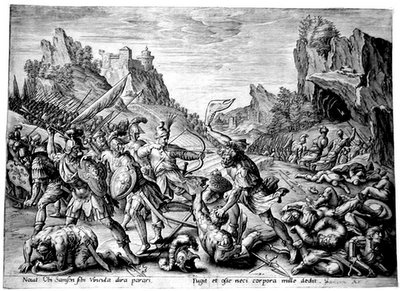




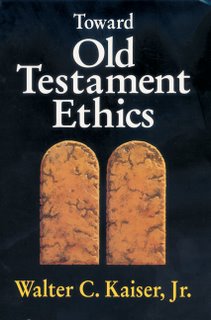

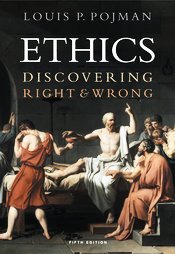





 For Your salvation I wait, O LORD. Gen. 49:18
For Your salvation I wait, O LORD. Gen. 49:18